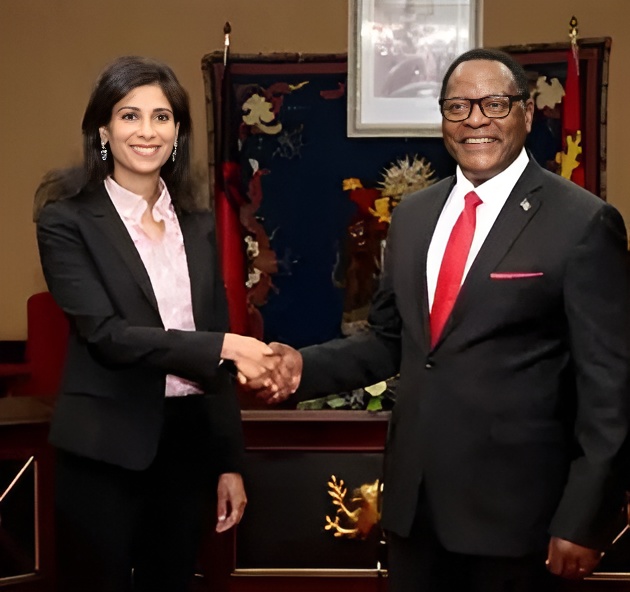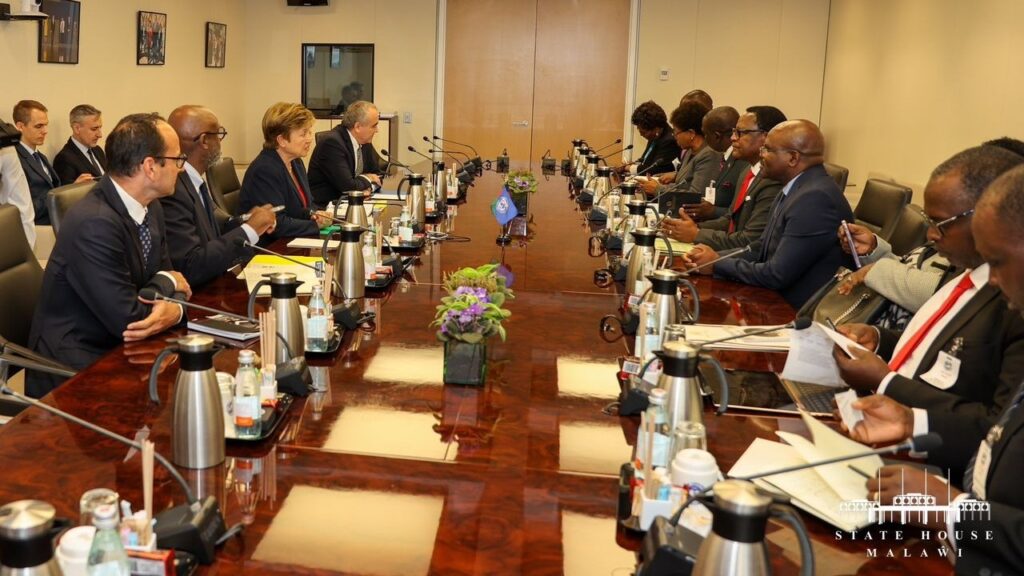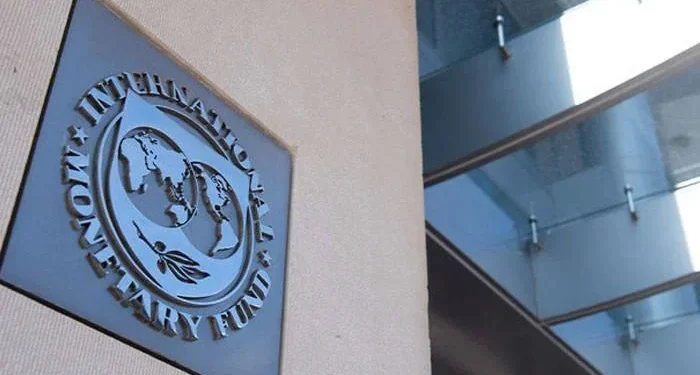After the 14th of May 2025, the Extended Credit Facility (ECF) program between Malawi and the International Monetary Fund (IMF) naturally expired, with the Government of Malawi, under the leadership of President Dr. Lazarus McCarthy Chakwera, opting not to seek its renewal, as provided for in the original design.
In place of the ECF, the Malawi Government and the IMF agreed to embark on Article IV Consultations as provided for in the IMF Articles of Association.
This move, often misunderstood by critics, was neither a retreat nor an act of economic isolationism. On the contrary, it was a bold and necessary pivot, anchored in realism, responsibility, and a desire to protect the interests of Malawians.
To put the matter into context, stakeholders may wish to know that the ECF program was not properly designed and was largely based on overly ambitious assumptions. A particularly contentious provision within the ECF framework was the call for a sharp devaluation of the Kwacha.

At the time of the negotiations, the IMF contended that the exchange rate was misaligned with underlying economic fundamentals. This perceived misalignment led to sustained pressure from the IMF for the Kwacha to be devalued or “realigned” to what was considered a market-clearing level.
A key assumption underlying the negotiations was that, following devaluation, the approval of the ECF would be met with immediate disbursements totaling approximately US$467 million in foreign exchange.
These inflows were to be sourced from both the IMF and Malawi’s development partners. The logic was that such inflows would serve two purposes: anchor the exchange rate and inject forex liquidity into the market to help cushion the adverse effects of the devaluation on ordinary Malawians.
It must be noted that such a significant devaluation, the Kwacha was devalued by 44% in November 2023, was inherently risky and required that these forex inflows materialize immediately to prevent speculative attacks and stabilize the exchange rate.
Regrettably, by the time the ECF lapsed, only about US$100 million had actually been disbursed.
Since May 2022, the Kwacha has depreciated by over 120%. The consequences have been stark: heightened inflationary pressures, the emergence of a robust parallel forex market, pressure on importers, increased public debt, and shrinking purchasing power for consumers.
The reality is that Malawi had pinned its hopes on timely and adequate support from its traditional donors. The ECF program’s success depended entirely on this donor response, which never fully materialized.
In many cases, donors failed to honor their commitments in full or did so only after significant delays, some stretching nearly two years. The knock-on effects on the economy were disastrous: the exchange rate became volatile, inflation soared, and the government budget was placed under extreme strain.
Foreign exchange reserves failed to accumulate as projected, and the black market for forex became more entrenched.
Against this backdrop, it is imperative to appreciate that the decision by Dr. Chakwera’s administration to allow the ECF to lapse was not a failure, but rather a politically sound and economically pragmatic move. It was a decision grounded in the government’s responsibility to protect the socioeconomic wellbeing of the Malawian people.
Letting the ECF lapse signaled a bold departure from dependency and blind compliance with conditions that did not serve Malawi’s best interests. Instead, the government chose to pursue a home-grown, evidence-based economic reform path. It was a case of putting people before numbers, a decision that prioritized social justice over fiscal rigidity.
The ECF program was also underpinned by assumptions around the ease and timelines of restructuring debt with two of Malawi’s regional creditors. Yet, the terms and conditions presented by the IMF in the debt restructuring proposals were not only overly ambitious but also tone-deaf to the prevailing realities.
The proposed grace period of 17 years and repayment window of 13 years, along with substantial haircuts, were outrightly rejected by the regional creditors. These terms were far outside what these creditors themselves offer to countries in need.
Despite knowing this, the IMF maintained its position and was unwilling to compromise or explore alternative options.
The result was a long, difficult, and ultimately fruitless debt negotiation process.

Worse still, the IMF advised that Malawi should deliberately default on repayments to the two institutions and remain in arrears. This recommendation had severe consequences: the country’s credit rating took a hit, and Malawian banks found it more expensive and difficult to transact with global financial institutions. As banks absorbed these new costs, they naturally passed them on to Malawian consumers and businesses.
Throughout the implementation of the ECF, the IMF showed a rigid stance on various economic and social policy fronts. The Fund opposed salary increases for civil servants, even amid spiraling inflation that eroded real incomes.
They were also against the recruitment of additional civil servants, particularly in critical sectors like health, despite donor funding for these posts having been withdrawn.
Efforts by the Malawi Government to explore alternative and innovative debt restructuring proposals, such as repaying external debt in local currency while boosting domestic export production, were summarily dismissed.
Two regional creditors had even proposed partnerships to support Malawi’s value-addition efforts and build forex generation capacity. Still, the IMF turned a blind eye.
One cannot help but ask: why was the IMF not interested in sustainable, flexible, and partnership-based approaches to Malawi’s debt crisis? This rigidity proved to be one of the biggest hindrances to the success of the ECF.
Importantly, the expiration of the ECF does not mean that Malawi has cut ties with the IMF. The country remains an active and committed member of the Fund. This is why the government immediately entered into Article IV Consultations.
These consultations provide a platform for frank dialogue, policy reviews, and technical support. They allow the country to reflect on what worked and what didn’t during the ECF, and how future engagements with the IMF and other financial institutions can be better structured to meet Malawi’s specific needs.
The Article IV Consultations have proven to be more flexible and responsive to the Malawi Government’s input. This process respects the country’s sovereignty and allows for greater alignment between economic policy and the lived experiences of Malawians.
At present, Malawi faces a tough economic environment. Several exogenous shocks have battered the economy, ranging from global commodity price volatility, climate-related disruptions, and regional instability.
These shocks have led to: low economic growth; persistent inflation, especially food-driven; depleted foreign exchange reserves; a growing revenue-expenditure gap; and ballooning foreign debt stock.
The government has had to borrow more just to keep providing essential public services, while also meeting its debt obligations, now inflated due to currency depreciation.
It is encouraging, however, that the IMF recognizes the magnitude and origin of Malawi’s challenges. There is now shared understanding that these shocks are not wholly the result of domestic mismanagement, but also stem from global and regional events beyond the country’s control.
Still, the IMF itself has acknowledged these stark realities. In a statement released and reported by The Nation, the IMF painted a grim picture of Malawi’s economy, highlighting high inflation at 27.7 percent, a surging public debt ratio of 88 percent of GDP, and foreign exchange reserves dangerously low, covering less than a week of imports. According to the same report, the ECF was terminated without completing a single review, effectively halting any further IMF funding.
In the same vein, the IMF has urged Malawi to increase domestic revenues, cut unnecessary public expenditure, reform the exchange rate regime, and tackle issues of debt management and corruption more robustly. However, the underlying narrative from the Fund seems to gloss over the challenges it created by imposing unrealistic expectations without meeting its own financing promises.
What is becoming clear is that the Dr. Chakwera administration’s bold step to let the ECF lapse was the right call. This move protected Malawi from deeper structural harm and gave the country breathing room to recalibrate its macroeconomic path. It allowed Malawi to pursue sovereign, pragmatic policies tailored to local needs instead of externally dictated prescriptions.
The Government of Malawi has already embarked on several structural and fiscal reforms aimed at stabilizing the economy and building long-term resilience. These reforms include:
Supply-Side Interventions:
- Targeted investments in agriculture and industry to increase productivity
- Value-addition in exports and local manufacturing
- Infrastructure development to enhance trade efficiency
Fiscal Consolidation:
- Enhanced domestic revenue mobilization
- Improved public financial management
- Targeted expenditure to protect vulnerable groups
Debt Management:
- Continued negotiations for sustainable debt restructuring
- Consideration of innovative instruments like debt-for-development swaps
- Strategic partnerships with creditors willing to invest in Malawi’s productive sectors
These reforms are being implemented under a home-grown macroeconomic framework with realistic but ambitious targets. Unlike the externally imposed frameworks, this blueprint acknowledges local nuances and builds on Malawi’s comparative advantages.
Continued negotiations for sustainable debt restructuring
Consideration of innovative instruments like debt-for-development swaps
The expiration of the ECF should not be misinterpreted as a step back. On the contrary, it is a bold move by Dr. Chakwera administration to reclaim Malawi’s economic sovereignty.
The ECF, as designed, was ill-suited to Malawi’s current realities. It failed to deliver the promised disbursements, ignored local debt restructuring proposals, and imposed conditionalities that could have worsened the already fragile social fabric.
Walking away allowed Malawi to chart a more flexible and inclusive path, grounded in national priorities.
In doing so, the government has demonstrated both political maturity and economic foresight. By pivoting to home-grown solutions and maintaining constructive dialogue through Article IV consultations, Malawi has reaffirmed its commitment to reform—on its own terms.








